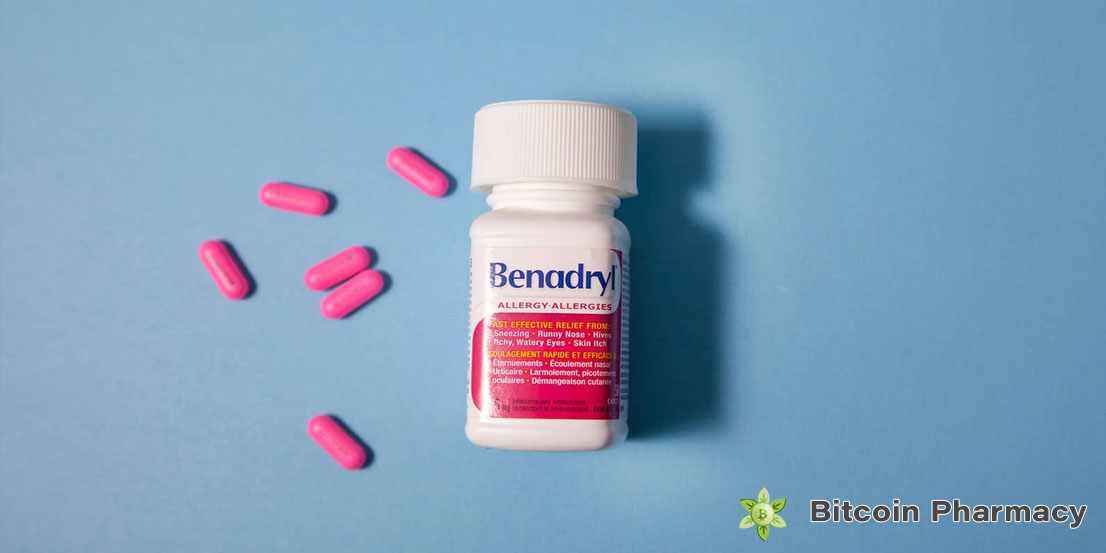Diphenhydramine, commonly known as Benadryl, is a well-known over-the-counter medication used to treat a variety of conditions like allergies, the common cold, insomnia, and hay fever. It’s also used topically for minor burns, cuts, or itchiness. While most people use it as directed, some might misuse this medication, thinking it’s harmless just because it’s available without a prescription. However, the reality is that diphenhydramine abuse is quite common and can be dangerous.
Can You Really Abuse Diphenhydramine?
Yes, it’s possible to misuse diphenhydramine, especially when taken in high doses. In these cases, the drug can cause delirium, hallucinations, and other harmful effects on the nervous system. In fact, people who misuse it may develop a psychological dependence on the drug, meaning they crave it even though they know it’s harmful.
Abuse happens when someone takes diphenhydramine repeatedly, either to chase its effects or because their body builds a tolerance. They may experience withdrawal symptoms when they try to stop using it. Signs of diphenhydramine abuse include:
- Continuing to take it even after symptoms have cleared
- Mixing it with alcohol or other drugs
- Using it as a substitute for other substances
- Denying how much you use
- Feeling like you can’t relax without it
- Constantly thinking about where to get more or how to get high
- Isolating yourself from friends or family
- Struggling with daily life responsibilities, like work or school
If any of these sound familiar, it might be time to consider quitting diphenhydramine abuse.
What Are the Risks of Using Diphenhydramine Too Much?
The side effects of abusing diphenhydramine can be serious and wide-ranging. Some common effects include:
- Ringing in the ears (tinnitus)
- Sedation and dizziness
- Irritability and confusion
- Seizures and fainting
- Rapid heart rate and heart palpitations
- Blurred or double vision
- Memory and concentration issues
- Anxiety and stomach upset
- Constipation, dry mouth, and nausea
- Liver problems
In some rare cases, a paradoxical reaction can occur, where the drug causes symptoms opposite to what it’s intended for, like increasing agitation instead of sedating the person.
Prolonged abuse of diphenhydramine has also been linked to an increased risk of dementia and Alzheimer’s disease, according to certain studies.
The danger increases when diphenhydramine is mixed with other substances like alcohol, muscle relaxers, benzodiazepines, or opiates. These combinations can cause dangerous interactions that might even be fatal. Always remember that mixing drugs is never a safe choice.
What Happens in Case of Overdose?
An overdose of diphenhydramine is a medical emergency. Symptoms include:
- Extreme drowsiness
- Difficulty breathing
- Irregular heartbeat
- Enlarged pupils
- Seizures
If any of these symptoms occur, immediate medical attention is crucial, as they can be life-threatening if left untreated. It’s important to be upfront with healthcare providers about all medications or substances you’ve been using.
How Can You Treat Diphenhydramine Abuse?
If you or someone you know is struggling with diphenhydramine abuse, the best course of action is to gradually reduce the dosage over a period of time—usually one or two weeks. The timeline depends on factors like how long the abuse has been going on, how much of the drug has been taken, and the person’s overall health. It’s important to consult a medical professional for a tailored plan.
For those dealing with mental health challenges like insomnia, anxiety, or depression, additional treatment options are available. There’s no need to continue abusing substances when there are effective solutions to address the root causes of these issues.
Are Other Antihistamines Abused as Well?
Diphenhydramine isn’t the only antihistamine that people abuse for its sedative or hallucinatory effects. Some other first-generation antihistamines also have these properties, including:
- Promethazine
- Chlorpheniramine (Chlor-Trimeton)
These older antihistamines are more likely to cross into the brain and cause side effects, making them more susceptible to misuse.
On the other hand, second and third-generation antihistamines, like Cetirizine, Loratadine, Fexofenadine, and Desloratadine, have much less of a sedating effect. These newer antihistamines don’t penetrate the brain as much, making them less likely to be abused. Their side effects are also fewer, and they target specific receptors in the body, making them a safer choice.
In summary, while diphenhydramine abuse is a serious issue, it’s important to know that help is available. If you or someone you know is struggling, seeking professional treatment can lead to a full recovery.

